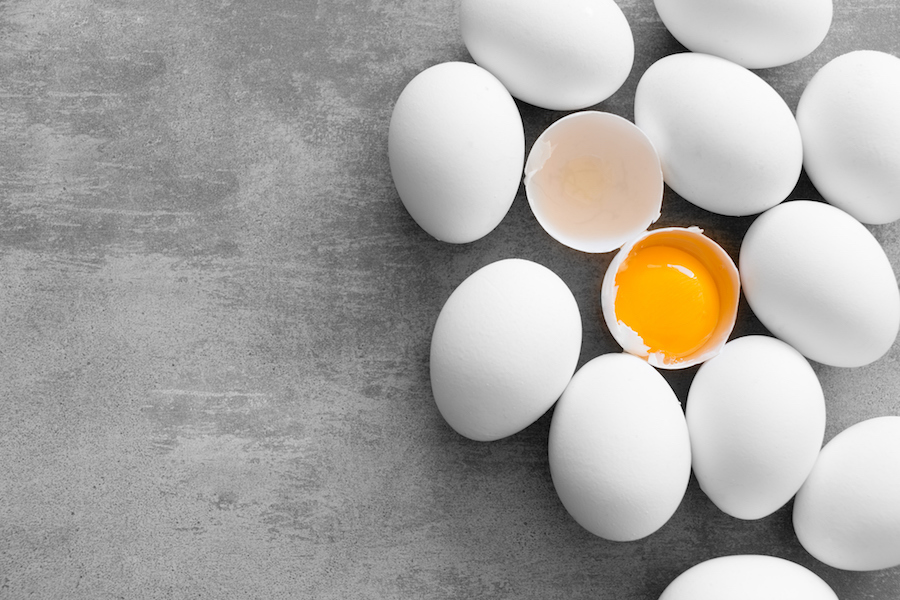5 of the most balanced foods you can find, according to a nutritionist
These foods really pack a punch in the healthiness stakes.
‘Superfood’ is such an overused word, it’s hard not to roll your eyes when you hear it.
However, when you look past all the Instagram posturing and clickbait headlines, what foods could legitimately be called ‘super’? We’re talking about which foods will give you most bang for your buck in terms of healthiness – because, as we know, some are far more nutrient-loaded than others.
We asked Lola Ross, a qualified nutritionist and healthy-living enthusiast who runs a small practice in East London, to talk us through the foods she thinks are most nutritionally balanced. Of course, it’s never a good idea to focus too much on single foods – balance and variety is key when it comes to eating healthily – but these foods are so rich in vitamins and minerals, it’s worth having them on your radar.
Here are 5 of the most balanced foods you can find…
Quinoa
Once seen as just a fad among hipster foodies, it would now seem quinoa is more than just a passing craze.
Lola describes quinoa as: “A South American grain-like seed that has been popularised over recent years as a rice or wheat alternative, due to its complete amino acid profile, B vitamins, magnesium and iron plus small amounts of essential omega fatty acids.”
So it might be small, but quinoa is very much mighty in terms of vitamins and minerals – and best of all, it’s incredibly easy to fit into your diet. Simply swap with the rice or pasta you would use for a stir-fry or in salads and curries, etc. Quinoa contains almost twice as much fibre as other grains, which, combined with all its other health benefits makes for an easy win.
Eggs
While the likes of quinoa have been wholeheartedly embraced by the healthy-eating brigade, spare a thought for the humble egg. Eggs have had a bit of a rough time of it in the media, with some pretty nasty things being said about their cholesterol levels over the decades.
However, we would like to put in a good word for eggs, because they’re actually jam-packed with a whole lot of good stuff – and very popular with nutritionists.
Lola says: “Eggs are often described as a complete food due their concentrated composition of fats, protein, vitamins and minerals required for growth and development.”
They’re also famed for helping you feel full for longer, and contain next to no carbohydrates, meaning eating eggs won’t spike your blood sugar levels (could there be a more ideal snack?). And don’t worry about the cholesterol too much – eggs contains the good type which won’t actually have a negative impact on your blood cholesterol levels.
Don’t be under the impression that you have to be stuck with rubbery scrambled eggs to get all this goodness. Jazz up your eggs with spices, poach them or add them to frittatas, or just hard-boil them to eat on the go.
Spirulina
Spirulina is one of popular new superfoods you’ve no doubt seen people talking about on Instagram. It’s increasingly making its way into smoothies and baked goods, thanks to its high levels of protein.
Lola says: “Only small amounts of spirulina provide useful levels of concentrated protein, magnesium, iron, antioxidants and many other nutrients that we require to maintain health.”
It’s easiest to buy spirulina in powder form, to add to your shakes or smoothie bowls.
Cows’ milk

OK, we’re back onto safer ground with this one (unless you’re vegan or dairy-free). Even though cows’ milk often gets a bad rep in the media, this doesn’t mean people should completely shun it – unless they have to for medical reasons, of course.
“Cows’ milk is amazingly designed to nourish a growing calf,” Lola explains, “and therefore for humans it is a complete food. It contains high levels of proteins, essential fats (if grass-fed and organic) and every vitamin and mineral required for growth and development.”
Even something as simple as drinking a glass of milk a day will give you a whole range of nutrients.
Seaweed
This one might surprise you, but seaweed is becoming an increasingly trendy ingredient – and you can see why.
“Depending on environmental conditions, seaweed can be a rich source of protein containing all of the essential amino acids and high levels of essential fatty acids,” Lola explains. “Seaweed is packed with most of the vitamins and minerals – such as magnesium, iron, B vitamins and iodine – we need for health.”
Even though seaweed is a fairly new addition to hipster eateries, it’s been a key ingredient in Japanese cuisine for centuries. We’re not saying seaweed is the sole reason Japan is consistently near the top of the list for countries with the longest life expectancy, but maybe it counts for something?
If you want to experiment with seaweed, head to your local Asian supermarket and pick up nori – sheets of dried seaweed that you can use to make your own sushi.
The Press Association
Latest posts by The Press Association (see all)
- 5 surprising things you can clean in the washing machine - January 9, 2025
- Prince William posted a heartfelt birthday message to ‘most incredible wife and mother’ - January 9, 2025
- Birthday wishes for Catherine from royal family as the Princess of Wales turns 43 - January 9, 2025
- Maple Cinnamon Granola - January 8, 2025
- 8 things your feet can tell you about your health - January 8, 2025





















